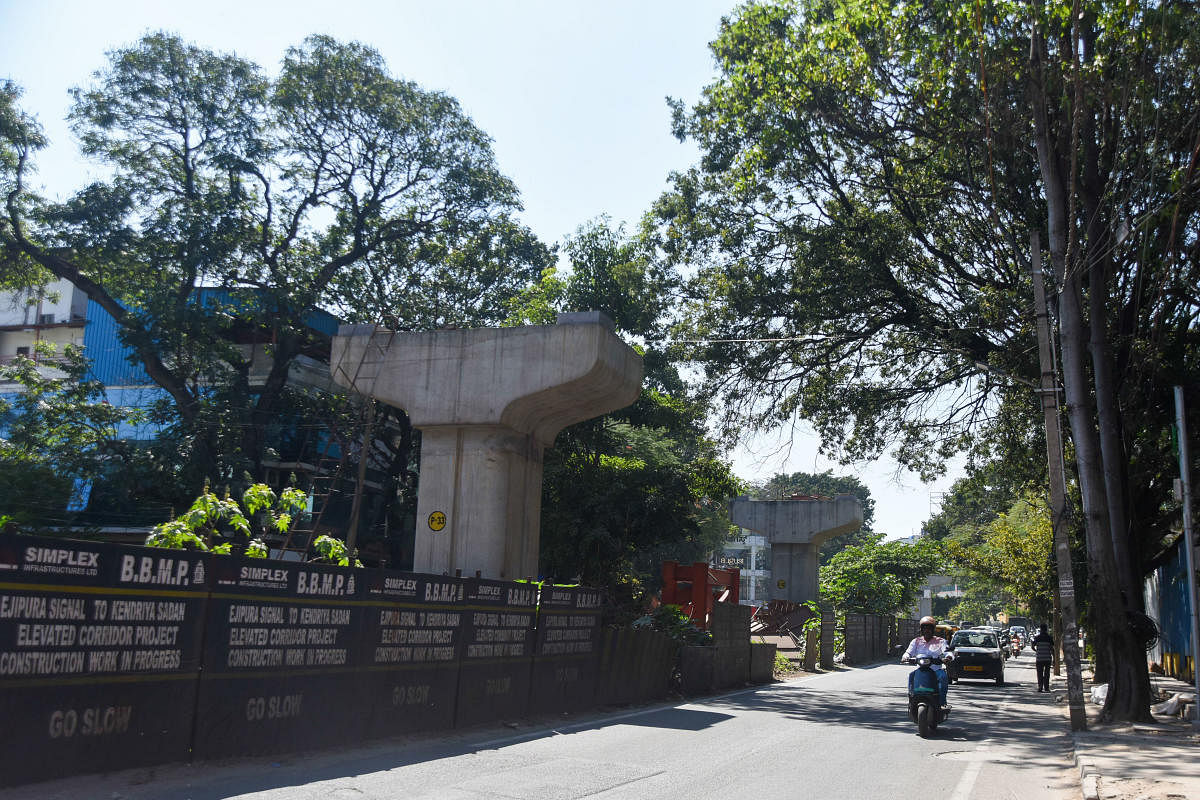

Can the half-done Ejipura flyover be repurposed to facilitate a much-longer tram project that can carry more people?
Indeed, public transport advocates are rooting for the tramway that could cover the 15-kilometre distance between Baiyyappanahalli and Central Silk Board along the Inner Ring Road.
The tramway, they say, will link two metro stations and a railway terminal. The suggestion comes in the wake of the BBMP’s failure for the fourth attempt to revive the 2.5-km flyover project between Ejipura and Kendriya Sadan.
The Rs 200-crore project, proposed in 2016, has been seen as a reason for Koramangala missing out on metro connectivity. Many fear that the flyover would further clog the Indiranagar 100 Ft Road.
Tramway suitable?
A tram is a light rail transit system popular in cities like Berlin, Jerusalem, Vienna, Paris and Prague. It is faster than the traffic and can carry around 350 passengers at a time.
Experts say a mix of elevated and at-grade tramways could be built between Baiyappanahalli’s Sir M Visvesvaraya railway terminal and Central Silk Board (or Forum Mall), a busy stretch dotted with tech parks (Bagmane and Embassy Golf Link), Old Airport (HAL), major hospitals (St John’s and Manipal) and residential estates (Jeevan Bima Nagar, Ejipura and Madiwala).
Dr Ashish Verma, Indian Institute of Science (IISc) professor and convener of the Sustainable Transportation Lab, said tram tracks could be laid on any existing road, including flyovers.
"It is technically feasible but there needs to be a study to assess the travel demand and how it can be integrated with the existing systems,” he said.
He was also of the opinion that the tramway could be a good metro and bus feeder system in a city like Bengaluru.
Prashanth Srinivas, founder of Catalytic Think Tank Forum, said the 15-km tramway project could be executed through public-private or public partnership, with the support of BMRCL and BEML. "The trams could run at a frequency of five minutes on four tracks in two directions. If the government makes up its mind, the project can be implemented in less than 18 months and with very minimal hard infrastructure development,” he said.
"Bengaluru badly requires last-mile connectivity, multimodal integration and force multiplication of resources to the vast public transport investments being made."